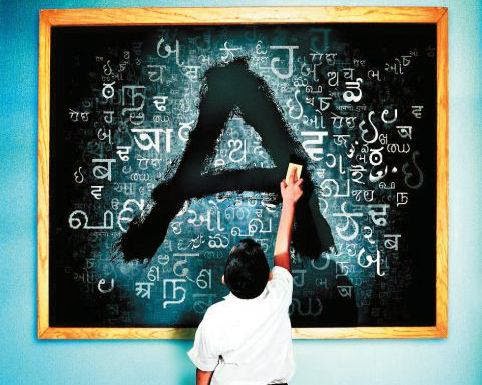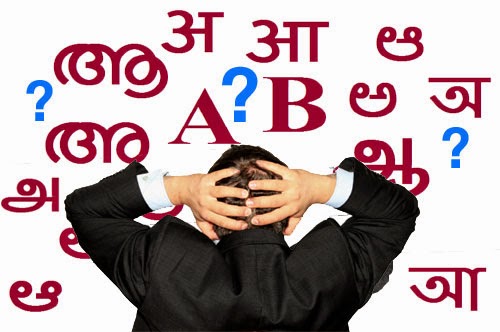It could be argued that language is one of mankind’s most powerful inventions. The complex shifting sands of thoughts and feelings inside men and women can only be explained, codified and shared using language.
But the reality is that languages are abundant and ubiquitous, all the more so in multilingual India. Growing up in a cosmopolitan city like Bangalore (the Silicon Valley of India), I was never startled by the number of languages that existed around me.
Although my mother tongue is Tamil, my parents were reluctant to send me to a Tamil-medium school. Instead, they enrolled me in an English-medium school like many Tamils even in a Tamil dominant society.
In school, it wasn’t just English that I had to learn earnestly, but Kannada (the state language of Karnataka) and Hindi (the so-called national language of India) as well. Having grown up speaking Tamil, the intentions behind learning all these languages was oblivious to me back then. The change felt awkward at first, and dabbling in three new languages without distorting any of them seemed hard.
I was further baffled when I discovered that I had nobody to assist me in learning these languages at home. I still remember scribbling the English equivalents of each and every word that appeared in the Kannada and Hindi coursebook – and turning them into a great mess. I had to seek help in learning these languages at school as the people back home knew nothing more than Tamil and English.

Ironically, while I was unable to distinguish between ‘zha’ ழ and ‘la’ ல in Tamil and their respective usage and the pronunciation, there I was making great strides in mastering the pronunciations and grammar of English, Kannada and Hindi. There was no push from my family to make me read, write and understand the intricacies of Tamil as it wasn’t a part of the school curriculum and thus seemed unimportant to them.
Tamil came to me unconsciously from hearing people speak it all around me. And as you learn the language while hearing it, you pick up its phrases and colloquialisms. During my middle school days, I tried to read and write Tamil myself with a little help from my grandmother. The effort put in to read Tamil made absolute sense to me as I was more aware of the words I was uttering, and also it helped me pronounce a few Tamil words correctly.
Soon after, I became the only person in my circle of friends and cousins who could read Tamil texts that appeared on TV, newspapers and magazines. I was even nagged by non-Tamil boys in school to teach them profanity in Tamil as it would help them yell at some annoying Tamil dude!
It wasn’t just English, Kannada and Hindi that I had to learn and adapt to, but also Urdu, Telugu, Malayalam, Marathi and Oriya – the languages that my neighbors and schoolmates spoke at large. I also felt more obligated to learn these languages because I was told that learning many languages would help me in solving problems in the near future when taking up professions like engineering, medicine and law. Furthermore, many of my non-Tamil neighbours and schoolmates learned and spoke Tamil better than me. But I was hardly making any effort to learn their language.
Quoting Nelson Mandela:
“If you talk to someone in a language he or she understands, that goes to the person’s head. If you talk to somebody in his or her language, that goes to the person’s heart.”
Apparently, I was lost in espousing languages and their complexities. I was exposed to nearly a dozen languages. Yet putting in effort to learn all of them made no sense to me as more favoritism is accorded to the English language, even today. English serves as the unifying communicator among Indians who speak different languages. It has already become the language of elite and of governance in India, even putting aside the original Macaulayism.
Therefore, I had to deliberately shift from using these languages and move towards English as the new lingua franca and directed to the diamond point of oneness.
* * * * *
Related:
Why Don’t Tamils Speak Tamil?
Why It’s Important to Learn Tamil

 Praveen Suresh
Praveen Suresh









